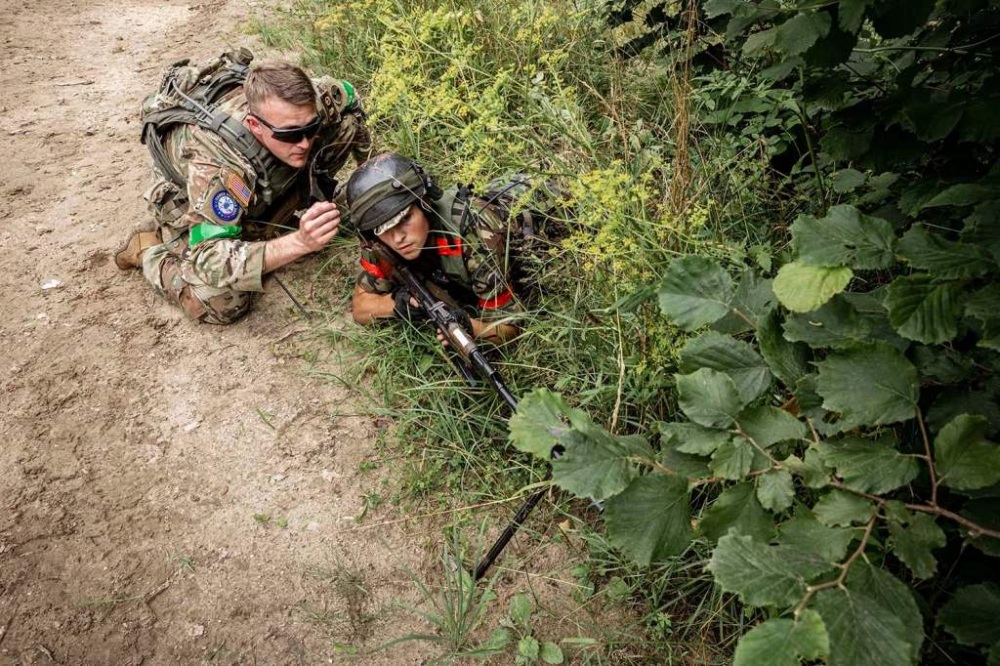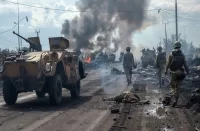For years now, political scientists, including American ones, have been talking about a post-American world. The Ukrainian crisis and its impending outcome suggest a new quality of geopolitics since the indirect participation of the United States in this conflict leads to a defeat for Kiev, a defeat for the United States. After the defeat of Napoleon’s France and Hitler’s Germany, this is the last missing link in the chain of clarification of relations between the West and Russia in the field of power politics. After that, it is possible to talk about a new normality in the global and European politics, the establishment of which will be preceded by a period of non-confrontation, that is psychological adaptation of Western elites to this reality, complicated by the euphoria of “victory in the Cold War” and the illusion of “unipolar moment” that formed the current generations of Western politicians.

What might the current narrative of international relations consist of until everything falls into place in the coming and already emerging world order?
First. Driven by a deep historical tradition of containment and, on occasion, dismemberment of Russia, the West, with the United States taking the lead from Germany and Britain in the postwar period, has consciously opted for a dual expansion – NATO and the European Union – as a “reassurance” against the resurgence of a strong Russia and its restoration of its status as a global power. The current crisis was predictable: George Kennan, who laid the theoretical foundations for a policy of containment (with his 1946 “Long Telegram” from the American Embassy in Moscow), considered the decision to expand NATO “the most fateful” in American policy in the post-Cold War period.
Second. Historically, the current crisis completes the cycle of Russian containment dating back to World War I, one of the key objectives of which was for Berlin to prevent – in line with the logic of the Thucydides trap – Russia’s powerful economic rise, comparable to China’s current rise which resulted from the Stolypin reforms (as well as all those that preceded it – the abolition of serfdom and the Great Reforms of Alexander II). The country had a strong position in the world trade – in the grain and oil market, had a strong currency, and its economic growth rate was about 10%.
London provoked the outbreak of war by its ambiguous position with regard to allied obligations to France which was in military alliance with Russia. Berlin was convinced until the last moment that the British would stay away if they declared war on Russia. To obtain from the British a public statement to that effect was the main task of the mission of the Russian ambassador in London, Alexander Benckendorff, which was never fulfilled. The Germans were aware that Russia could only be crushed from within, and therefore worked with Trotsky and the Bolsheviks. The British, for their part, joined in this task as part of Lord Milner’s mission in January-February 1917, participating in the Duma Liberal conspiracy against Nicholas II which took the form of the February Revolution and the abdication of the Tsar which became the point of no return in destabilizing Russia.
The Liberals paved the way for the Bolsheviks to take power. The purpose of London was to prevent the successful spring-summer offensive of the Russian army and to prevent Russia from obtaining the geopolitical benefits associated with the defeat of Germany and its allies, above all control of the Black Sea straits. Thus, the Russian Revolution, which interrupted the evolutionary development of the country, was the result of a complex conspiracy by external forces using various segments of Russia’s still immature and heterogeneous political class.
Third. The conflict between Russia and the West has a cultural and civilizational dimension, which goes back to the schism of the Universal Church in 1054, the capture of Constantinople by the Crusaders in 1204 and its fall in 1453, when Orthodoxy had already acquired a strategic depth in the Grand Duchy of Moscow. We are thus talking about the different fates of Christianity in the West, where the Reformation eventually prevailed, marking a return to the Old Testament, and in the East, primarily in Russia. Fyodor Tyutchev in the mid-19th century defined the relationship between Russia and the West, quite shared by Western elites, including, judging by recent developments, as follows “By the very fact of its existence, Russia denies the future of the West”.

Thus, the conflict between the West and Russia throughout its entire duration, regardless of the convergence moments, of which there were many in the 20th century (including the Russian Revolution, comparable in its meaning with the Reformation), was cultural and civilizational and, as far as one can judge from the developments after the Cold War, can have no other positive outcome than peaceful coexistence, tested in the Cold War. The unipolar illusion of the historical West, on the one hand, and modern Russia’s restoration of the link of times and historical continuity (in relation to the entire pre-revolutionary period), on the other hand, determine the severity of the current conflict, its existential nature for both parties.
Moreover, the development of Western society itself over the past at least 50 years testifies in favor of the entry of Western civilization into the age of decline. It was predicted by O. Spengler in his “The Decline of the West”, according to whom the twenty-first and subsequent centuries will be characterized, among other things, by “the internal disintegration of nations into a formless population” and “the slow penetration of primitive states into a highly civilized way of life”. All this is accompanied by a crisis of culture, the beginning of which dates back to the destruction of traditional society in the wake of the French and subsequent revolutions of the nineteenth century.
The aristocratic critique of Western democracy, in particular the observations of the French political scientist A. de Tocqueville, who noted in his “Democracy in America” that “freedom of opinion does not exist in America”, where “the majority creates impressive barriers [to it]”. This feature of American consciousness and political culture is quite evident in such phenomena as McCarthyism and is now manifesting itself in the form of political correctness, including the imposition of “new values” and the apologetics of political movements like “Black Lives Matter!” (BLM).














Comments